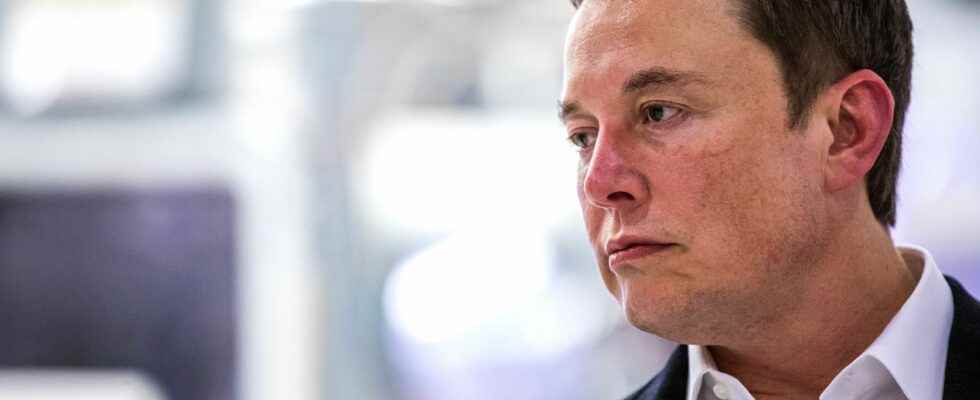Stupor on the blue bird. The Twitter accounts of several American journalists were suspended Thursday evening December 15 without any warning. Among the professionals banned from accessing their newsfeed are Donie O’Sullivan of the CNN television network, Drew Harwell of the Washington Post, Ryan Mac, of New York Times, Matt Binder from Mashable, as well as a handful of other freelance reporters. Their common point: critical coverage of the takeover of the social network by Elon Musk.
This action comes after the controversial withdrawal by the teams of the multi-billionaire from the @ElonJet account. The latter automatically relayed his movements on board his private jet. This monitoring, based on public information, irritates the richest of the planet, singled out for their disastrous carbon footprint in the era of awareness of global warming. In France, the account @IFlyBernard uses these same data to observe the movements of LVMH boss Bernard Arnault. In January, Elon Musk tried to reach the owner of the @ElonJet account, a young man of 19 years, Jack Sweeney, offering him 5000 dollars to stop his activities. Without success.
But the case accelerated on Wednesday. The boss of Tesla and Space X tweeted that a car in Los Angeles with his child in it was followed by “a crazy stalker”. Musk pointed, without any evidence, to the tracking of his private jet as the reason. He announced in this tweet that he was therefore going to sue the person behind the @ElonJet account, followed by 500,000 people. Twitter’s terms of service have also been changed: “We will remove Tweets that share this information, and accounts dedicated to sharing someone else’s live location will be suspended,” the terms of service now advise. use of the site.
An “impulsive” decision
The role of the banned journalists in this story remains unclear. On CNN, Donnie O’Sullivan recalled that he had simply covered the subject. Its editorial staff referred to an “impulsive” decision by the company owned by Elon Musk. Same answer in the columns of the washington post. The media outlet owned by Jeff Bezos reacted: “Harwell has been banned from Twitter without warning, process or explanation, following the publications of his specific report on Musk. Our journalist should be reinstated immediately.”
In a “Space”, an audio chat room on Twitter, the boss of the social network suggested that these journalists had engaged in “doxing”. That is, the fact of divulging personal information on the Internet against a person’s will and with the aim of harming him or her. If not more. “They displayed my exact location in real time, basically assassination coordinates,” Musk also explained. Struggling, he then left the conversation and deleted the room. The Bellingcat news site also revealed that Musk’s alleged stalker was not near any airportrendering the original accusation largely unfounded.
This offensive reflects above all a real drift in terms of freedom of expression that Musk had nevertheless sworn to defend out loud. “Twitter’s free speech aspirations cannot be reconciled with the removal of critical journalist accounts,” American Civil Liberties Union executive director Anthony D. Romero said in a quoted statement. speak washington post. In France, the Minister in charge of Digital Jean-Noël Barrot denounced an “attack” on “freedom of the press”. The European Union threatened the social network with “sanctions” on Friday. The suspension of another account, its competitor Mastodon, would be based on these same accusations of “doxing”. It makes just as likely the hypothesis of a real coup by the new owner of the blue bird against its critics from all sides, its enemies and its competitors. In addition, all links leading to this Twitter bis, open-source and decentralized, have also been blocked.
Several polls launched by Elon Musk in recent hours suggest that the suspension of journalists could be short. A week at most. Nevertheless, this offensive highlights a little more the difficulties encountered by Musk at the head of Twitter. The man is desperately trying to breathe new life into the social network by developing paid subscriptions and betting on the “anger business”, a way to boost traffic and earn advertising revenue. The results, however, are awaited. On Thursday, Elon Musk again sold shares linked to his car company Tesla, in order to finance his expensive acquisition of Twitter for 44 billion dollars. More personally, the man was also booed this week by hundreds of people, for several minutes, during the show of comedian Dave Chappelle who had invited him on stage for the occasion.
